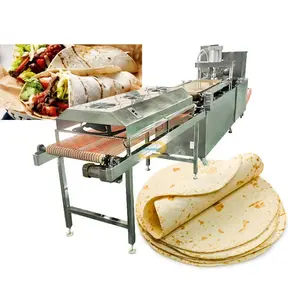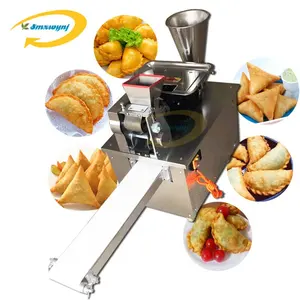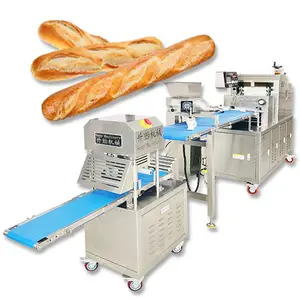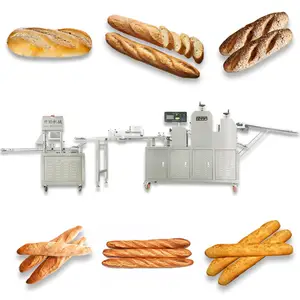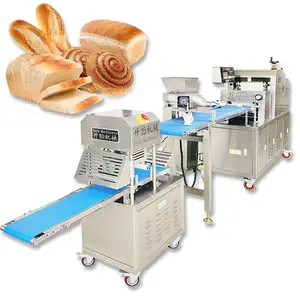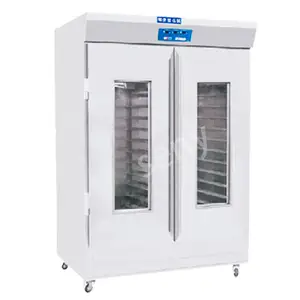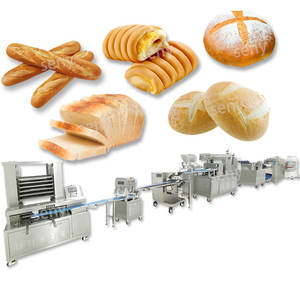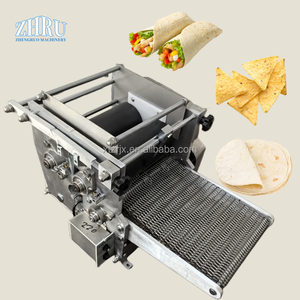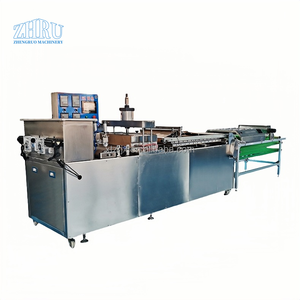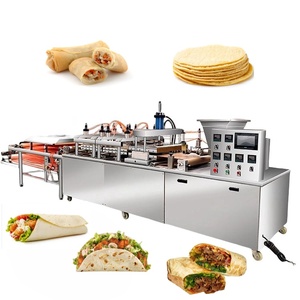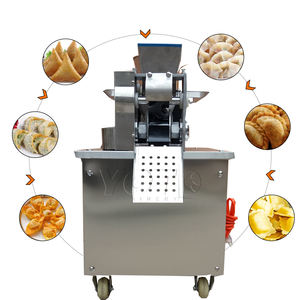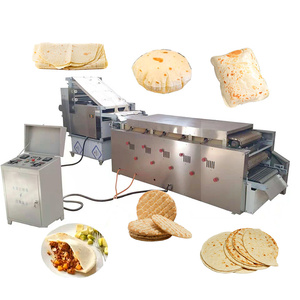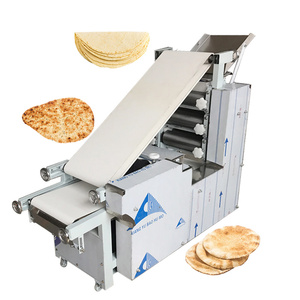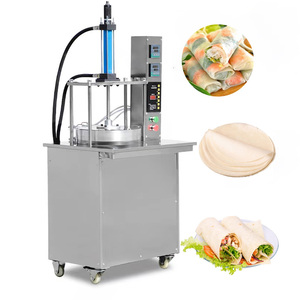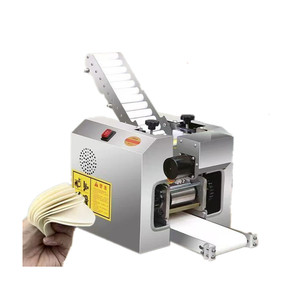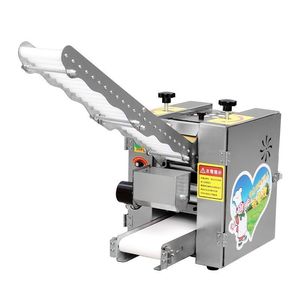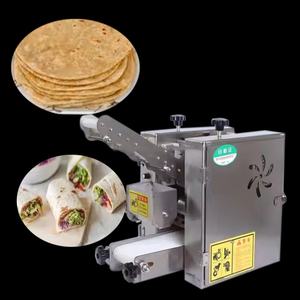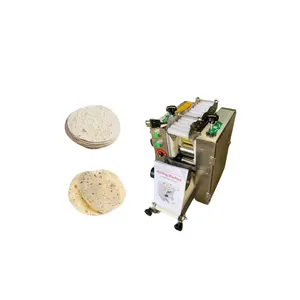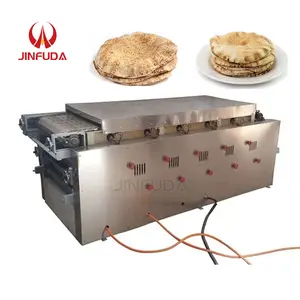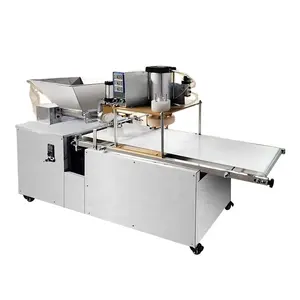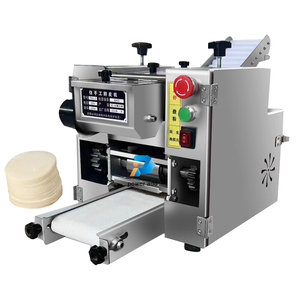Roti Making Machine Fully Automatic





 Top sponsor listing
Top sponsor listing




 1/10
1/10

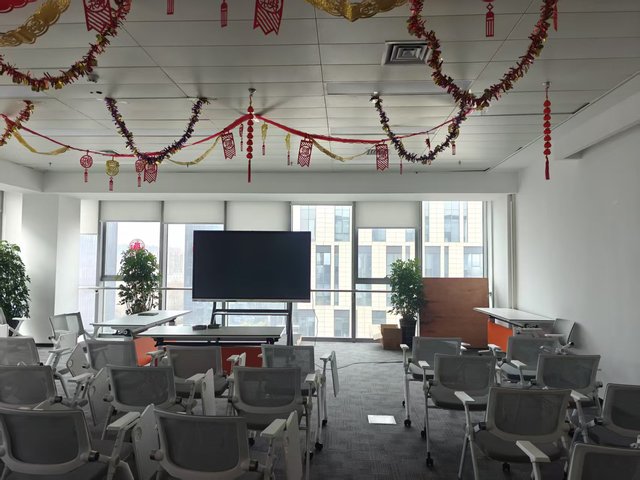

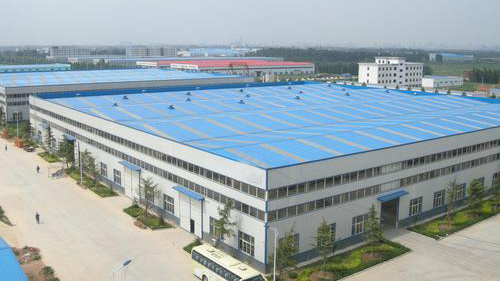

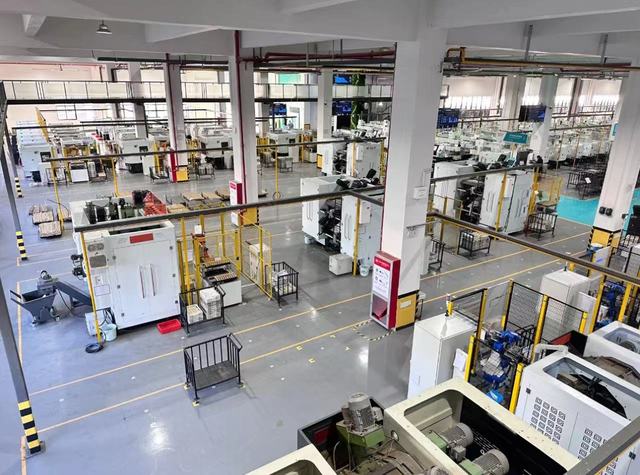



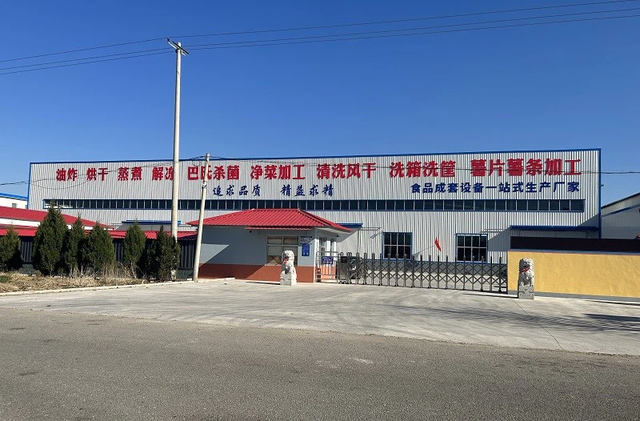
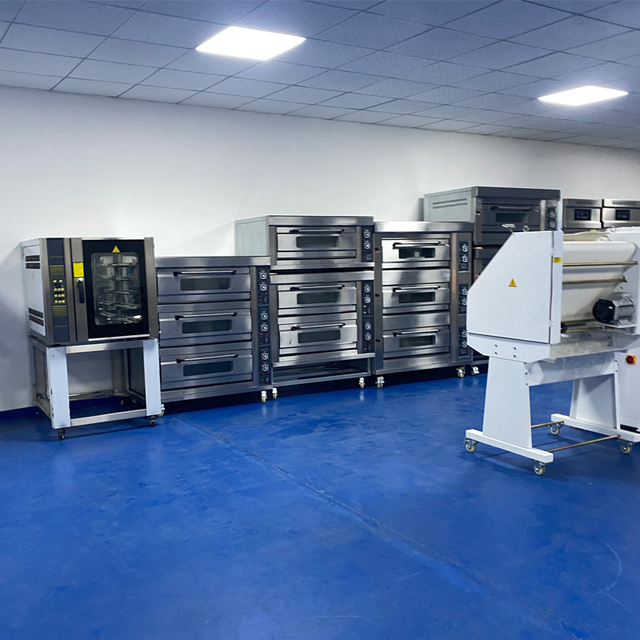





 1/12
1/12




 1/4
1/4




 1/20
1/20




 1/15
1/15

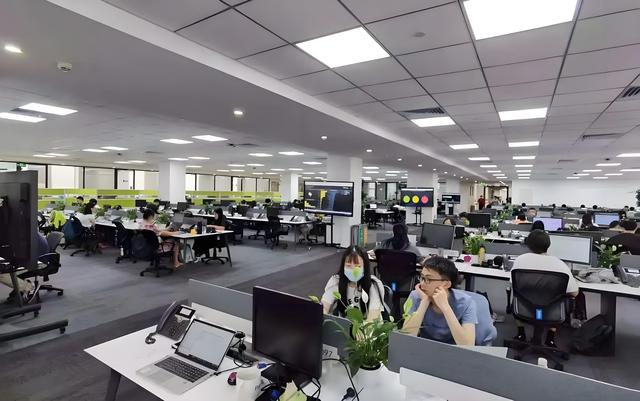

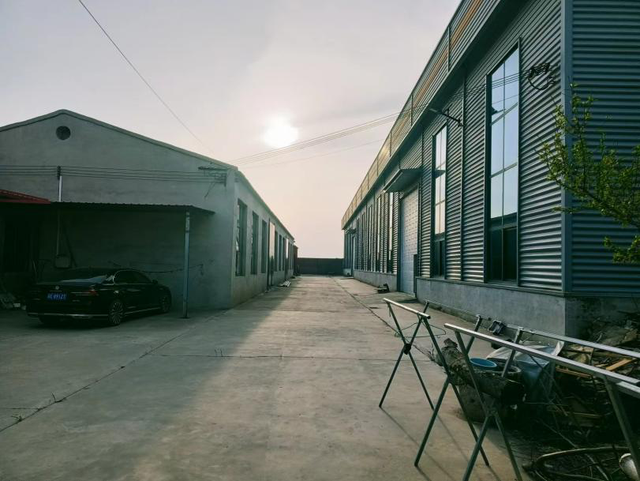
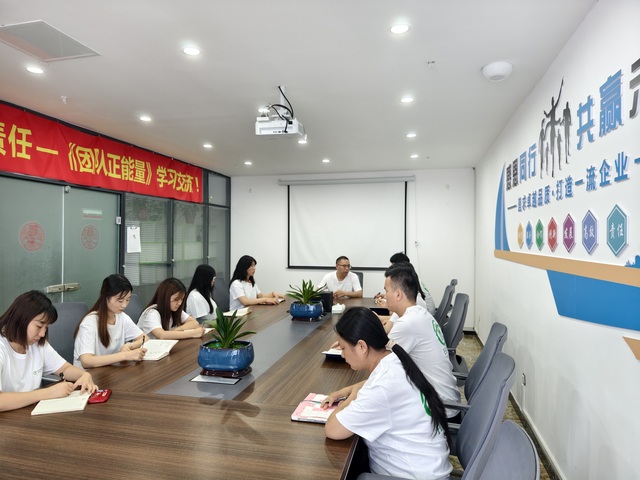
About roti making machine fully automatic
Where to Find Roti Making Machine Suppliers?
China is the primary global hub for fully automatic roti making machine production, with key manufacturing clusters concentrated in Henan and Shanghai. These regions host vertically integrated supply chains specializing in grain product processing equipment, enabling cost-efficient production and rapid scaling. Henan alone accounts for over 70% of listed suppliers, leveraging localized access to stainless steel fabrication, electrical component assembly, and food-grade material sourcing.
The industrial ecosystem supports both compact tabletop models and industrial-scale production lines, with manufacturers offering modular designs adaptable to tortilla, chapati, pita, and flatbread formats. Proximity to port infrastructure in Shanghai and Qingdao facilitates efficient export logistics, with average lead times ranging from 25–40 days for standard configurations. Buyers benefit from competitive pricing—driven by 15–25% lower labor and material costs compared to Western alternatives—and flexible order structures accommodating low MOQs (as small as 1 set or piece).
How to Choose Roti Making Machine Suppliers?
Effective supplier selection requires systematic evaluation across technical, operational, and transactional dimensions:
Technical & Production Capabilities
Assess whether suppliers possess in-house engineering teams capable of customizing machine parameters such as dough thickness control, baking temperature range (typically 180–300°C), cycle speed (600–1,200 pieces/hour), and power configuration (single-phase vs. three-phase). Prioritize manufacturers with documented experience in food contact safety standards and thermal efficiency optimization.
Quality Assurance Metrics
Evaluate performance indicators where available:
- On-time delivery rate ≥97% indicates reliable production planning
- Response time ≤2 hours reflects proactive communication capacity
- Reorder rates above 20% suggest customer satisfaction and product reliability
- Verified customization capabilities including material grade (e.g., SUS304 stainless steel), labeling, and logo integration
Transaction Security & Verification
Confirm presence of structured quality management systems. While formal certifications (ISO 9001, CE) are not uniformly declared in available data, prioritize suppliers providing detailed product specifications, compliance documentation, and transparent after-sales service policies. Utilize secure payment mechanisms and request sample units before large-volume orders to validate build quality and operational consistency.
What Are the Best Roti Making Machine Suppliers?
| Company Name | Location | Main Products | Online Revenue | On-Time Delivery | Avg. Response | Reorder Rate | Customization Options | Product Range |
|---|---|---|---|---|---|---|---|---|
| Shanghai Seny Machinery Co., Ltd. | Shanghai, CN | Bread/Grain/Biscuit/Meat Processing Lines | US $1M+ | 100% | ≤2h | 60% | Color, size, voltage, packaging, logo, material, function | 14+ models across industrial and commercial scales |
| Xingtai Zhengruo Machinery Manufacturing Co., Ltd. | Xingtai, CN | Tortilla/Roti/Pita Bread Machines | US $40K+ | 100% | ≤1h | <15% | Material, size, color, logo, packaging | 5 specialized electric roti/tortilla models |
| Henan Zhuodong Supply Chain Management Co., Ltd. | Henan, CN | Grain Product/Dough Sheeter/Meat Slicer | US $20K+ | 100% | ≤2h | <15% | Limited customization per listing | 5 variants including Arabic bread and multi-functional units |
| Yongtao Group (Henan) Co., Ltd. | Henan, CN | Grain Product/Potato Chips/Filling Machines | Not specified | Not specified | ≤4h | Not specified | Basic structural customization | 5 models focused on mini and table-top applications |
| Saidashi Machinery (Henan) Co., Ltd. | Henan, CN | Grain Product/Vegetable Cutter/Ice Cream Machines | US $100K+ | 100% | ≤3h | 20% | Size, voltage, functional modules | 5 diverse configurations from small to industrial scale |
Performance Analysis
Shanghai Seny Machinery stands out with the highest online revenue (over US $1 million) and a 60% reorder rate, indicating strong market acceptance and repeat business—key markers of product durability and service reliability. The company offers extensive customization across electrical specs, materials, and branding, supported by a broad portfolio spanning multiple food processing categories.
Xingtai Zhengruo excels in responsiveness (≤1 hour) and maintains perfect on-time delivery, though its lower reorder rate suggests room for improvement in long-term customer retention. Its product line targets niche applications like Mexican tortillas and Lebanese pita, appealing to specialized food producers.
Among Henan-based suppliers, Saidashi Machinery demonstrates balanced performance with a 20% reorder rate and full delivery compliance, while Yongtao Group shows potential but lacks verifiable transaction metrics. Buyers seeking high-volume, consistent output should prioritize suppliers with proven scalability and documented quality controls.
FAQs
What is the typical price range for fully automatic roti making machines?
Prices vary significantly based on capacity and automation level: entry-level tabletop models start at $305–500 per unit, mid-range commercial machines range from $600–$5,500, and high-capacity industrial lines exceed $6,500. Custom-engineered systems may reach $9,000+ depending on integration requirements.
Do suppliers offer customization options?
Yes, most leading suppliers provide customization for voltage (110V/220V/380V), machine dimensions, conveyor speed, heating element type, stainless steel grade, and user interface language. Additional services include OEM branding, packaging design, and functional adaptations for specific dough types (wheat, corn, multigrain).
What are common MOQ and lead time expectations?
Standard MOQ is 1 set or piece, allowing buyers to test equipment before scaling. Lead times typically range from 20–35 days post-payment confirmation, with expedited production possible for urgent orders. Air freight adds 7–10 days globally; sea freight takes 25–40 days depending on destination.
Are samples available before bulk ordering?
Sample availability depends on supplier policy. Some manufacturers offer single-unit sales that serve as de facto samples, while others may require full payment upfront. Refundable sample fees are occasionally applied toward larger orders. Testing should include evaluation of dough handling consistency, browning uniformity, and energy consumption under continuous operation.
How to verify machine compliance with food safety standards?
Request documentation confirming use of food-grade materials (e.g., SUS304 stainless steel, NSF-certified components), along with electrical safety reports. Conduct factory audits—virtual or physical—to inspect hygiene protocols, welding finish quality, and lubrication isolation in moving parts. Third-party inspection services can validate conformance prior to shipment.


